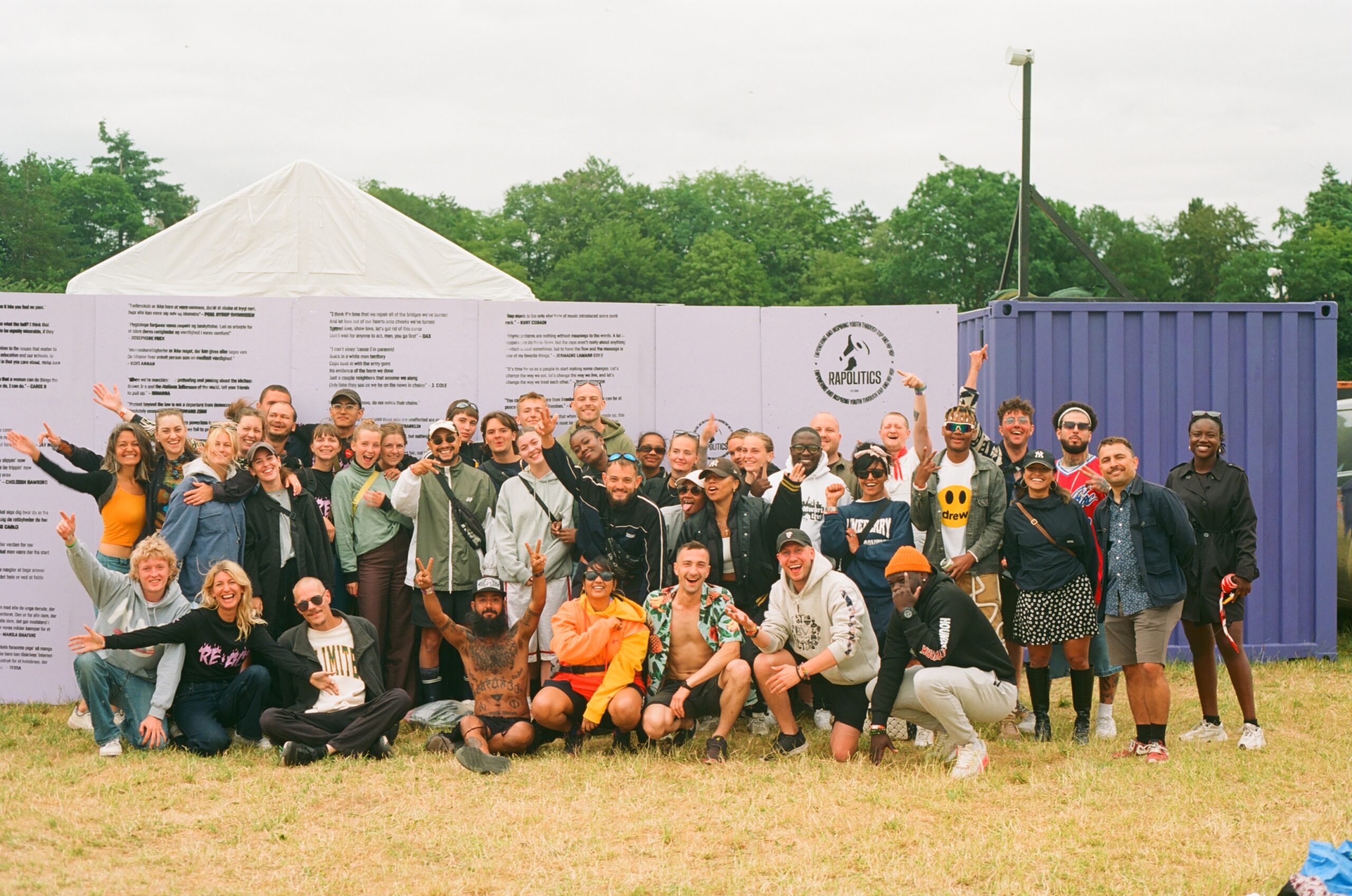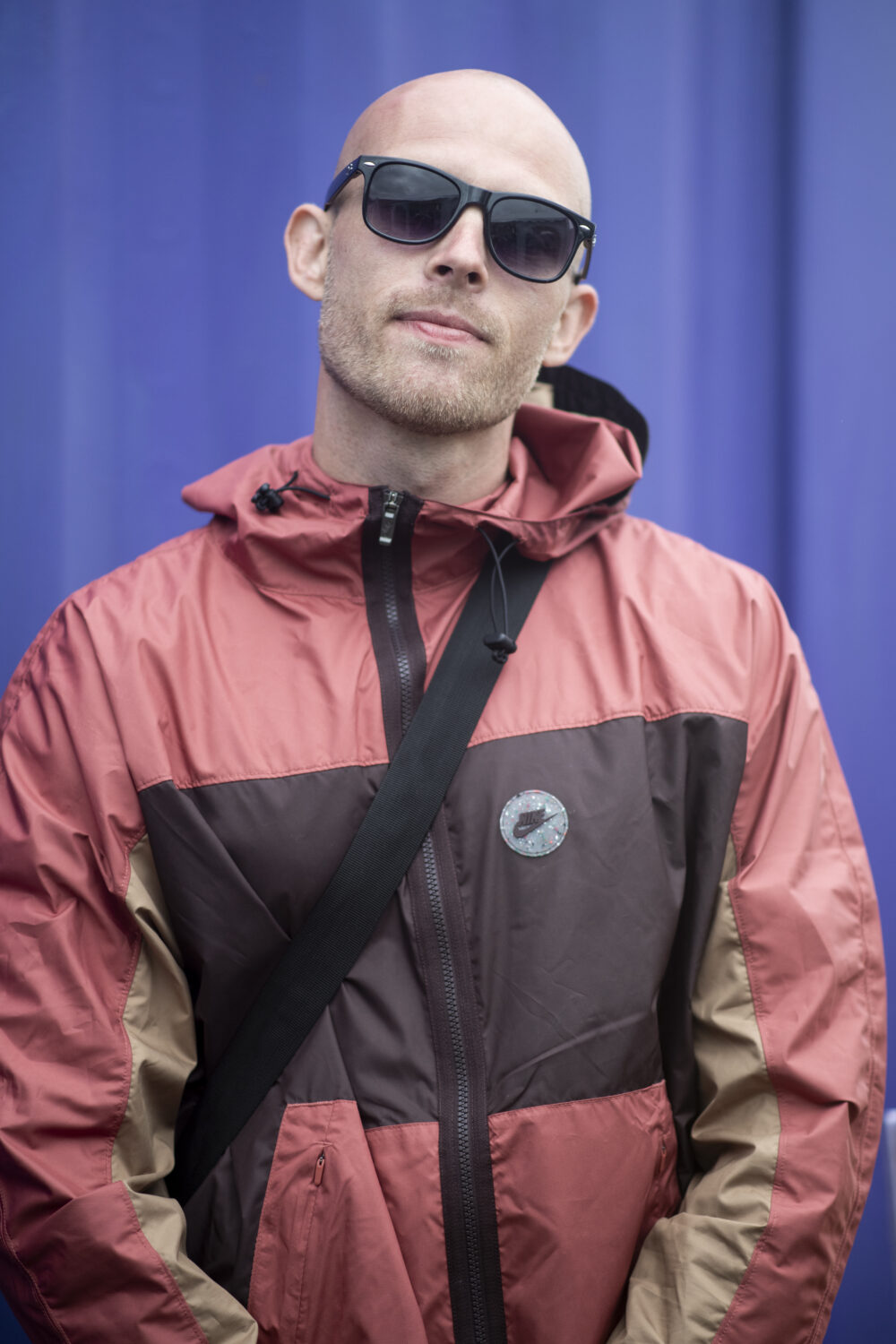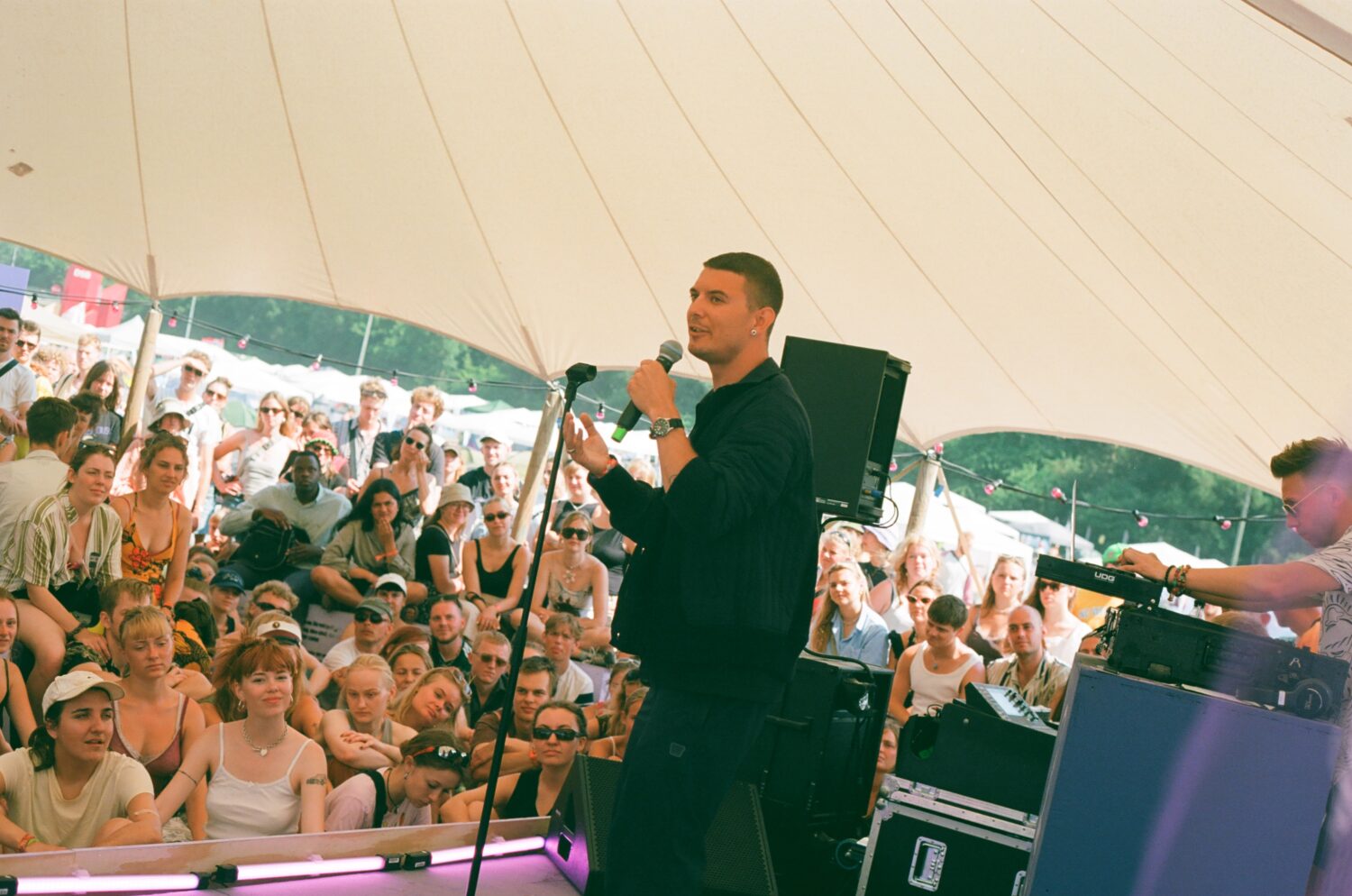
Human rights
through rap and hip hop
At the Nørrebro-based NGO, RapoliticsActivism is not just something you talk about - it's not even something you just do. Activism is part of the core DNA of the organisation that, together with the Danish Institute for Human Rights, is behind the Re:Act area at Roskilde Festival 2023.
Re:Act is an experimental platform where Danish and international rap artists gather to scrutinise the potential of music to promote human rights. This happens in the middle of Roskilde Festival's festive camping area with noisy soundboxes, happy high school students and ritual beer bowling tournaments.
At the helm of Rapolitics is Manus Bell, who is the chairperson and secretariat manager of the NGO. He explains the idea behind Re:Act and Rapolitics to Dansk Artist Forbund.
- The aim of the project is to educate and engage young people in human rights through rap and hip hop. Rapolitics has an exciting partnership with the Danish Institute for Human Rights and Roskilde Festival, creating a huge platform that can reach a lot of young people where they are.
- The institute has knowledge about human rights - and especially human rights violations. We have the method, which is rap and hip hop, and then we have the way we reach out to young people and engage them. We also do this outside Roskilde Festival with all our regular rap workshops.
Rapolitics is now an established NGO that since 2009 has been working for activism and empowerment with rap and hip hop as a form of expression. Today, the organisation has a small handful of full-time employees and almost 30 rap coaches for the more than 150 annual workshops at schools and educational institutions across the country.
Roskilde Festival 2023 is the first time Re:Act is formally on the bill, and it has been a great success, according to Manus Bell.
- Over three days we've had 18 acts. We've had rappers and hip hop artists from all over the world, including Zimbabwe, Palestine, Cuba and India. All from places that have human rights challenges that we don't know about in Denmark.
- But it's not just international names. Caspar Eric was also at Re:Act, where he read from his book about living with disabilities in Denmark. That's also about human rights! Even if it's not as extreme as what you experience in Cuba or the Middle East.

Also on stage were Indian rapper Krantinaari, who fights against patriarchy in India, and Cuban rapper David D Omni, who talks about the consequences of the censorship he faces in Cuba. It was food for thought for the young people under the tent, who could find another gear for the festivities for a while.
- Many people cried when they heard some of the artists talk. We made a combination of music and talks in every programme. So you could be attracted to the music: hip hop and rap, it sounds cool, but at the same time come in and become wiser," explains Manus Bell, who continues his point.
- Then you suddenly get some depth: Who is this person and what are the struggles they themselves are fighting in their home country? How do they actively use rap as information and communication to encourage other people to fight for their own cause? In this combination, it has worked insanely well.
In addition to the international artists, a team of six freestyle rappers have also been around the camping area, rapping activism about human rights. At Re:Act, you are met at eye level and with an approach that suits the festival's young audience and what's on their minds. Both when they are at the festival and when they return home.
- The UN officially has 30 human rights articles, which can get a bit dry, so we have chosen to create three subtopics. The topics are called Reclaim Your Body, which is about equality across gender and sexuality. Reclaim Your Voicewhich is about expressing your opinion, but also about being heard and Reclaim Your Homewhich is about the right to have a home and a nationality. There has been a day dedicated to each topic.

Manus Bell explains that the last category was visited by Cuban rapper David D Omni, who fled his home country due to the censorship of his lyrics. He now lives in Mexico, which is another example of how Roskilde Festival has actively increased its focus on telling stories other than just those that take place at the concerts on the big stages, where everything can easily turn into a mosh pit and sing-along.
But it's a festival, and it should be able to accommodate it all, says Rapolitics.
- People are not going to become experts in human rights based on a three-day programme at a music festival. But we hope to ignite some kind of political spark in them that can be further developed to suit our situation in Denmark.
- In the end, the goal is always the same. People need to use their voice. Here at the festival, at our events in Copenhagen and at our workshops. We need to hear from the back rows if change is to happen and we can have a better society to live in.
One of the events in Copenhagen is the Re:Claim festival, which will take place the first weekend of September on Guldbersgade in front of the Rust music venue. There will be ten concerts with artists who each speak to the core values.
In addition, Re:Act is a recurring event, and for next year's Roskilde Festival, the tent stage will again welcome a number of activist voices on the global hip hop scene to the camping area in Darup.

